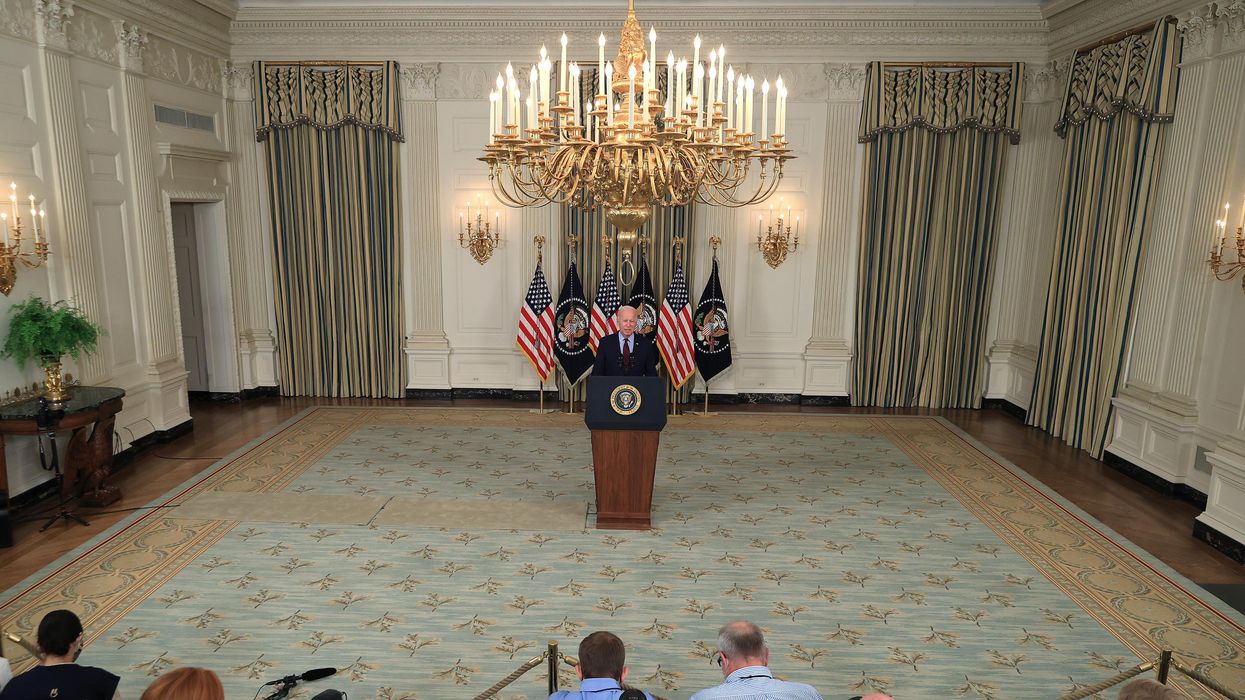A major crisis may have been averted, but the short-term gain will lead to a much greater long-term cost.
Congress recently narrowly avoided another government shutdown after contentious back-and-forth between Democrats and Republicans and first failing to pass a federal funding bill. The potential shutdown would have affected key government services such as the certain health care programs, food stamps and national parks.
Preventing the shutdown with mere hours to go may seem like a political victory but, to be sure, no one is winning.
Yes, vital services have been given the lifeline to continue but at a high cost. The measures assure they will have enough funding to sustain through Dec. 3rd, at which point another spending measure must be secured or a government shutdown will occur.
The major issues and conflicts that led to the partisan divide in the first place are far from resolved. Instead of meeting the deadline with resolution and newly recommitted compromise, policymakers hastily made short-term deals. They valued speed over quality and disregarded compromise.
No one needs to be reminded that our nation is facing one of the worst public health crises of our time with Covid-19 reaching the recent milestone of 700,000 deaths. Nor has anyone likely forgotten the need for vital government services, many of which would have been impacted by a shutdown. While addressing these issues fiscally may have been avoided for now, the longer impact still remains, both in terms of the financial and political repercussions.
Treasury Secretary Janet Yellen recently warned of the implications that failing to increase the debt ceiling could have, citing the potential for "widespread economic catastrophe." Even by narrowly avoiding the government shutdown, the country is faced with potentially defaulting on its debt as it approaches the national debt limit.
The United States usually spends more than it takes in and that tradition requires outside loans to make up the difference. Defaulting would waver the confidence of creditors and could usher in a series of steep political consequences, from future financial security to diplomacy with current and former allies.
The quick fix to avoid shutting down the government is not likely to impress U.S. creditors or offer much promise in addressing the arguably greater financial crisis in the debt ceiling limitations.
Understanding how it got to this point is easy. Debt accrues when debits outweigh credits. Necessarily expanding the role of government, especially in the last 19 months of Covid has only added to the costs, estimated by the Congressional Budget Office to be more than $2.4 trillion.
Yet identifying who is responsible becomes a far greater challenge. Some Democrats argue that both parties proposed policies that have led to this point while many Republicans have repeatedly said they will not pass a measure that will support policies they don't back. These include some items in the more liberal social agenda negotiated within the Democratic Party.
Recent polling indicates Americans generally agree with Republicans and subscribe blame to Democrats — as the party has enjoyed unified power in both houses of Congress and the White House since the last election.
With the congressional midterm elections looming next year, it is a political hot potato that no single party or politician wants to hold. And after seeing how leaders struggled to address government shutdown, the debt ceiling proves to be a far greater political challenge.
To be sure, the government has shut down 10 times in the last four decades but the circumstances have never been more dire and simultaneously avoidable.
Covid cases and deaths are slowly starting to drop nationally but the pandemic and its ravaging effects are far from over. Though government at all levels has been involved in economic recovery and public health measures, the federal government has borne the bulk of that responsibility, primarily under the American Rescue Plan. That plan allocated $1 trillion in tax credits and programs, $350 billion to emergency management funding, and $10 billion in relief for homeowners.
The price tag is hefty; the loss of lives is far greater.
Without congressional compromise to fund government agencies and avoid defaulting on credits by extending the national debt ceiling, the nation will face a substantial financial catastrophe. This would be the greatest challenge to the administration since President Biden took office in January.
Biden has been relatively quiet on this issue, seemingly leaving it up to Congress to work out the fight while he still reels from the debacle in Afghanistan and continues to focus on vaccination efforts as a reductive approach to Covid.
One of the challenges for Democrats is assuaging more liberal interests with more moderate pursuits and appeasing everyone in the party through the process. Biden initially ran against dozens of potential presidential candidates within his party, won his primary and ultimately the general election — all with the promise of compromise, moderate policies and strong leadership.
As the nation approaches the threat of the debt ceiling at the end of the month, Americans need compromise and strong leadership more than ever before.
This is the urgent season of change every American needs to witness.



















Trump & Hegseth gave Mark Kelly a huge 2028 gift